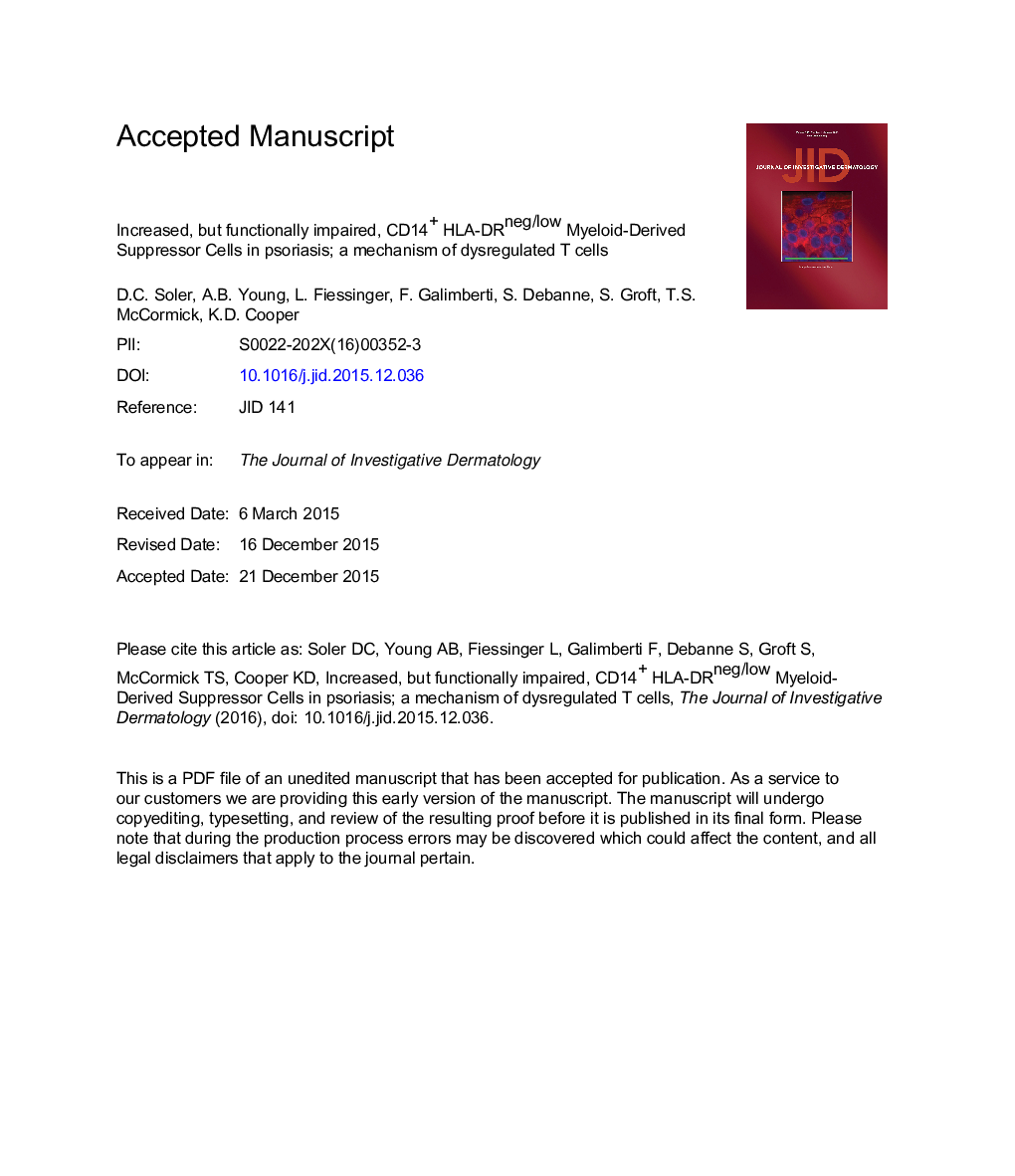| Article ID | Journal | Published Year | Pages | File Type |
|---|---|---|---|---|
| 6074434 | Journal of Investigative Dermatology | 2016 | 39 Pages |
Abstract
The clinical extent of psoriasis pathology is regulated in part by defects in immune networks, including a defect in the suppressive actions of regulatory T cells. Recently, CD14+ HLA-DR-/low monocytic myeloid-derived suppressor cells (Mo-MDSCs) have been shown to suppress T-cell activation as one of their suppressive mechanisms. However, little is known about the role of Mo-MDSCs and their functional relationship to T-cell suppression in relation to human chronic immune-mediated inflammatory diseases, including psoriasis. Despite psoriasis being a hyperinflammatory condition, Mo-MDSCs were elevated in psoriatic patient peripheral blood mononuclear cells compared to nonpsoriatic healthy controls (2.6% vs. 0.9%, P < 0.002). Freshly isolated psoriatic Mo-MDSCs directly suppressed CD8 T-cell proliferation less efficiently than healthy control Mo-MDSCs. In addition, psoriatic Mo-MDSCs expressed reduced surface expression of programmed cell death protein 1 compared to healthy controls. Additional in vitro assays also demonstrated that psoriatic and control Mo-MDSCs both induce regulatory T-cell conversion from naïve T effector cells, but, importantly, the regulatory T cells induced by psoriatic Mo-MDSCs displayed decreased suppressive functionality. These results suggest that aberrations in psoriatic Mo-MDSCs prevent proper suppression of effector T-cell expansion and hamper the immune system's ability to correctly self-regulate.
Keywords
Related Topics
Health Sciences
Medicine and Dentistry
Dermatology
Authors
David C. Soler, Andrew B. Young, Lori Fiessinger, Fabrizio Galimberti, Sara Debanne, Sarah Groft, Thomas S. McCormick, Kevin D. Cooper,
